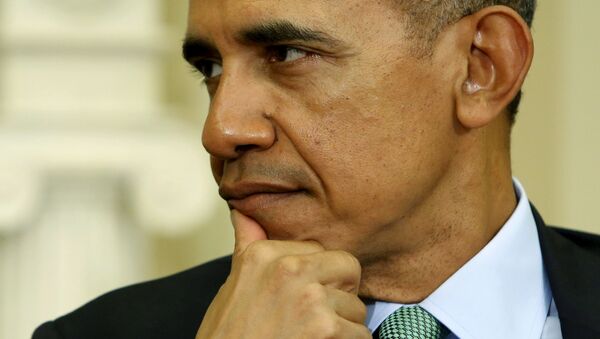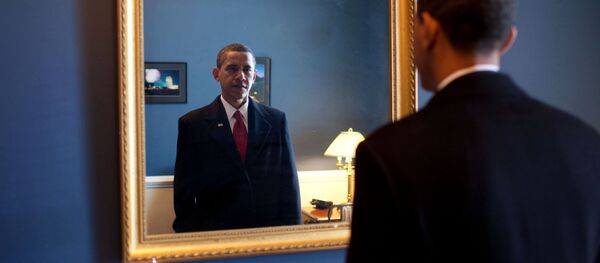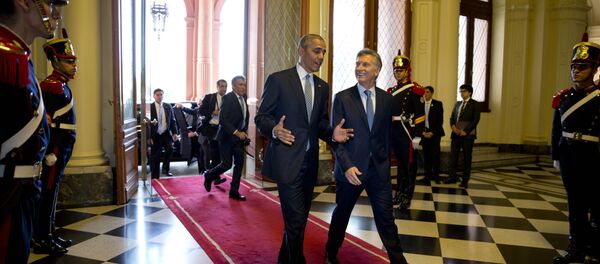Citing Jeffrey Goldberg's "The Obama Doctrine," American investigative journalist Gareth Porter writes that Barack Obama's views on the US "national security" differ from those propagated by national security bureaucracy and numerous foreign policy think tanks in Washington.
Goldberg's interview with the US President "showed that Obama's view on how to define and advance US 'national security' diverges sharply from those of the orthodox views of national security bureaucracy and Washington foreign policy think tanks on US 'credibility,' the real interests the United States in the Middle East and how the United States should respond to terrorism," Porter writes in his analysis for Consortiumnews.com.
Porter notes that although Goldberg's article made it clear that Obama's hesitation to invade Syria had certain grounds, US analysts largely ignored it.
The crux of the matter was that the US intelligence community was not sure that a series of deadly sarin gas attacks (which stirred up trouble in Washington) had been carried out by Assad.
Furthermore, American and British intelligence agencies were aware of the fact that the so-called Syrian rebels were developing chemical weapons.
"The joint chiefs… knew that the Obama administration's public claims that only the Syrian army had access to sarin were wrong. The American and British intelligence communities had been aware since the spring of 2013 that some rebel units in Syria were developing chemical weapons," Pulitzer-prize winning reporter Seymour Hersh wrote in 2014.
The investigative journalist points out that the US President regards such a "playbook" as "a trap that can lead to bad decisions."
"In the midst of an international challenge like Syria, you can get judged harshly if you don't follow the playbook, even if there are good reasons why it does not apply," Obama stressed.
Despite mounting pressure from neocons, Obama refused to walk into a Syrian trap back in 2013. However, he knew that "to press the pause button at that moment" would cost him politically.
Although Obama has repeatedly tried to break-up with the US foreign policy orthodoxy he continued to maintain a close relationship with Saudi Arabia and supported the Gulf kingdom's controversial sectarian policies in Syria and Yemen.
Also, contrary to his belief that "terrorism takes far fewer lives in America than hand guns, car accidents and falls in bathtubs," the US President increased the number of drone strikes in Pakistan, Afghanistan, Yemen and Somalia.
And still the very fact that President Obama made a decision which contradicted the established pattern on the use of force by the "indispensible" nation, unveils the internal fierce struggle among Washington's political elites.
"On the other hand, Obama's public break-up with the national security elite appears to represent a new stage in the politics of national security in which broader resistance to those powerful interests may possibly be feasible," Porter concludes.






